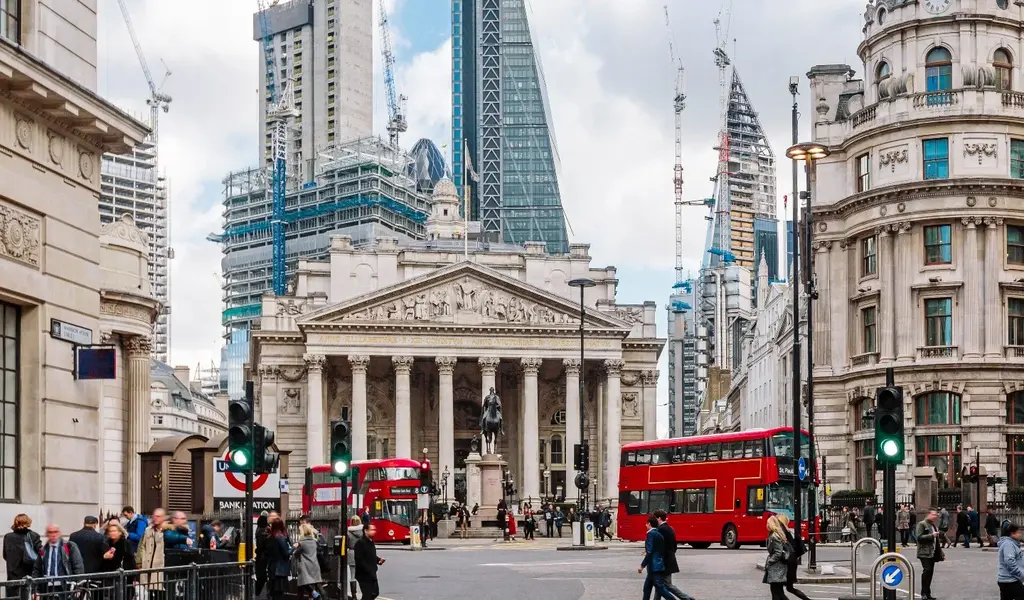(CTN News) – On September 20, 2023, the Bank of England made an unexpected announcement that sent ripples through the financial world.
In a surprising move, they chose to maintain the current interest rate of 5.25%, marking the first time in two years that the rate had not been raised.
This decision followed August’s inflation data, which showed a slight decline in the inflation rate to 6.7%, contrary to economists’ expectations of a rise to 7.1%.
While this rate freeze offers promise for the UK economy, it’s essential to understand its implications and whether it signifies a turning point.
Bank of England’s Narrowly Passed Decision
The decision to freeze the base rate was not unanimous, narrowly passing with five to four votes. This close margin suggests that it may be a temporary freeze rather than a significant policy shift.
It’s important to note that this decision does not necessarily mean that interest rates will remain stagnant throughout 2023. The central bank remains vigilant, ready to adjust rates as needed to navigate the complex economic landscape.
Implications for Mortgages and Borrowers
One of the immediate consequences of the Bank of England’s decision is its impact on mortgages and borrowers. For those with variable-rate mortgages, the freeze provides temporary relief from potential rate hikes.
This can help homeowners manage their monthly payments more effectively. However, borrowers should not become complacent, as future rate increases are still on the table.
Private Banking and Investment
While the rate freeze has implications for various sectors of the economy, private banking and investment are particularly interesting areas to explore.
Nick Hyett, an investment manager at Wealth Club, points out the positive benefits of lower interest rates for investment and private equity fundraising.
He explains that lower rates and yields can boost investor sentiment, which is good news for private banks that earn significant fees from wealth management services.
In times when cash yields are attractive, investors are less inclined to take risks.
However, when interest rates stabilize or start to decline, investors become more willing to allocate capital to risk assets. This shift can invigorate private banks and investment firms.
Furthermore, the private equity sector, often heavily leveraged, benefits from lower interest rates. Cheaper access to capital makes it easier to close deals, and the pressure from refinancing diminishes. This can lead to increased activity and growth in this sector.
International Factors at Play
Jason Holland, Managing Director of Evelyn Partners, reminds us that the UK’s role in setting the global cost of capital is limited. International events, especially those in the United States, have a more substantial influence on long-term performance.
However, the Bank of England’s decision still represents a significant step in the right direction for the UK economy.
Holland suggests that the decision to maintain rates was wise, as there was a risk of the bank overshooting with rate hikes, potentially pushing the economy into a recession.
This move hints at a “soft landing,” where the economy adjusts more smoothly to changing interest rates.
The Impact on Savers and Investors
For savers and investors, the disparity between the base rate and interest rates offered by high street banks remains a challenge. Andy Mielczarek, Founder and CEO of SmartSave, a Chetwood Financial company, highlights this issue.
Many individuals continue to receive lackluster returns on their savings, penalized for their loyalty to established banks.
Looking Ahead
While there are reports suggesting that interest rates may not decrease until mid-2024, the rate freeze offers a glimmer of hope after a turbulent period for the UK economy. It signifies a cautious approach by the Bank of England in a post-pandemic and post-Brexit landscape.
The decision reflects the complex economic considerations at play and the bank’s commitment to managing the delicate balance between stimulating economic growth and controlling inflation.
In conclusion, the Bank of England’s unexpected decision to freeze interest rates at 5.25% carries significant implications for various sectors, including private banking and investment.
While it is a promising sign for the UK economy, it does not necessarily indicate a long-term policy shift.







